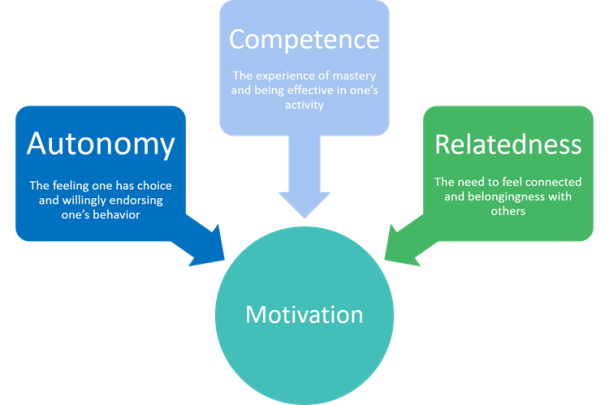Reflecting on wellbeing in the new normal.
It almost seems a cliché to state that the first half of 2020 has been unprecedented. Yet the reality of this statement is all around us. As I write these words, the world is collectively reeling from the devastating impact of COVID-19 and still, we are unsure when things will return to more sense of normalcy. One consideration is how our wellbeing has been affected by these recent events and how we have tried to mitigate the effects. The World Health Organisation defines wellbeing as:
“A state of complete physical, mental and social well-being and not merely the absence of disease or infirmity”
The year 2020 has certainly tested our ability to maintain all the aspects of this definition. The global pandemic has meant we have faced a completely new paradigm that has made life challenging in a variety of ways for both teachers and pupils. My personal experience is one that demonstrates this perfectly. In February, I looked at global media reports on the virus as it spread around the globe. By early March I was looking forward to enjoying the last term at the college and planning my summer travels to Australia and Africa. In a physical sense, I was putting plans in place to connect face to face with the educators I had taught online with at the Kakuma Academy in Kenya and the Roots and Shoots school on Tanzania and additionally excited at teaching teachers in Rwanda and touching base with South African educators I had connected with previously. Mentally I was preparing myself to say goodbye to pupils and colleagues who were leaving. Socially, I was looking forward to one, or maybe even more than one, leaving party.
For me all that changed on the 17th March when the college closed for what was thought for only a few weeks. It meant for an abrupt departure from face to face lessons and the start to a solitary lockdown enforced by COVID 19. More than five months on, I am still in Malaysia and still in lockdown, although the conditions have now been relaxed so I can travel within the country. During those five months, we have all learned a massive amount about ourselves, our relationships, and also how to value those around us.
The first expectation that needed to be challenged was “it would only be for a few weeks”, as because of this expectation, initially, both teachers and pupil’s learned and were taught using approaches that were not designed for this new situation that we were under. As a case in point, rigorous timetabling was employed where everyone was expected to be online for up to 8 hours a day, which was detrimental for everyone involved in terms of their emotional, social and physical wellbeing. However, as time went on, and it dawned on everyone that this was going to be a more permanent situation than first envisaged, changes were made that led to improvement for everyone concerned, some lessons of which I will outline now.
Everyone has found it difficult but some have faced more challenging times than others be this financially or emotionally. To a large degree, pupils’ experiences of the lockdown reflect their relationships at home and with their absent College relationships and experiences of learning. Certainly, many children have missed friends and teachers during their enforced physical isolation at home. Others have thrived with less social complexity in their lives. This has been seen with a number of my pupils who were struggling at College, who have found working at home a more effective way to learn.
Thankfully, very few in our community have had to deal with the physical effects of the virus. Young people need to feel socially and emotionally safe before they can engage with their learning and do their best academically. The College regularly polls both pupils and staff on their wellbeing. One of the most recent pupils well-being surveys showed that most of the pupils valued the time they were able to spend with their families and also the independence they felt in organizing their own time and learning with more depth. I know for my English as second language pupils, that they have found the lack of distractions and help given by their parents were an aide to their learning experience. Of course, with the positives, there have been negatives as well, with the missing connecting with friends being the top reason for not liking the College closure and one pupil remarking that “my mum keeps telling me to work when I want to play” but the overall tenor of the responses was a positive one. So what other positive things have been highlighted during this experience?
The importance of autonomy in learning.
The recent months have shown changes in autonomy for both teachers and pupils. It is understandable that so many of us have become frustrated, disengaged, and discontent with a loss of choice and control in our lives. We have needed to ensure that we take note of this heightened understanding of the importance of autonomy, agency, choice, and control during this time and implemented opportunities for this in the classroom for our pupils. This is based on self-determination theory that is an important concept referring to each person's ability to make choices and manage their own life. This ability plays an important role in well-being. Self-determination allows people to feel that they have control over their choices and lives. It also has an impact on motivation—pupils felt more motivated to take action when they felt that what they did will have an effect on the outcome.

The importance of clear, accessible and timely" communication
The importance of effective communication with parents must also be acknowledged. The very positive role played by the parents during this unexpected event needs to be nurtured. While coping with a myriad of issues in their personal and professional lives, having parents who are strong, supportive, and loving towards their children makes the job of the teacher a very much easier one.
The same applies when dealing with pupils. Maintaining communications on such things as arrangements for teaching and learning, changes to assessments were all part of supporting pupil wellbeing, and these communications needed to be “clear, accessible and timely”. Pupils were relying on regular communication in order to feel connected.
The importance of community.
One thing I have gleaned from discussions from my tutees is that they have a better understanding of the value of family and the things which bring the family together. Many pupils have been more willing to help around the house (ok, I did prompt them a bit). As an educator, being globally connected to a range of different voices allowed me to connect and develop my own teaching in response to their experiences. It also allowed me to share my frustrations and joys.

The importance of kindness and helping others who might normally go unnoticed.
One advantage of asynchronous learning was that with more time to reflect, learning was deepened and I could focus on those pupils who needed the most support. I could differentiate tasks more easily online and really focus on the learning rather than assessment. Keeping in touch with pupils to make sure that their questions and concerns are addressed is more important now than ever.
Dealing with the pragmatic challenges of the pandemic and resulting lockdown also added to pupil stress. Communication was key to offering understanding and a willingness to be flexible was most welcome to pupils during this time, especially because, understandably, pupils are suffering higher levels of uncertainty leading to stress and anxiety.
Through dialogue, it was clear not all pupils were responding in the same way to the pandemic, or indeed to the digital technology thrust upon them, and through noting these differences between pupils’ reactions to the pandemic, learning could be adjusted. Here was where a personal approach to pupils’ needs was most effective. Human contact – even via digital tools - helped allay pupil anxiety. Just to check in to make sure pupils were progressing and to offer any support, whether this is signposting to another approach or recommendations to plan for this unusual time.
The importance of staying active.
Being locked down and not being able to move from my apartment for two months, my health suffered. Once restrictions were eased, I was able to become more active again and my health has improved. This is the same for our pupils, so regular keep active classes were run by the physical education department.
The importance of music and literature
The ability to have time to watch the National Theatre and be able to have time to read again and reflect on deeper learning and understanding and allow me to connect to humanity through the arts. Additionally, in online house meetings through video conference, pupil’s gave book reviews and played instruments to their peers.
Everyone has learned new depths to their independence and adaptability
We are able to overcome much more than we had previously thought and as both educators and pupils, we learned how flexible and adaptable we are. Though it is important to understand the challenges of change.
The importance of routine and how it influences our daily work.
One thing I did is maintained routines, from getting up for breakfast to set timetables for teaching. The pupils who have adjusted the best in this time of crisis also seem to have developed a routine.
“Me time” has been highlighted as a crucial support to our personal well-being
One of the transitions the College made as the lockdown continued was a move away from synchronous lessons to pupil tasks which were more offline. This illustrated that taking things more slowly and adding depth rather than breadth to learning was an important part of maintaining pupil wellbeing and time for reflection was critical.

It’s OK to feel sad or worried and there is always someone close by who will be willing to listen
A range of emotions is normal in times of change and for a majority of our pupils, they had an outlet to discuss their emotions with either parent, caregivers, or staff. One area of improvement would be to have the same opportunities to discuss such issues for staff, especially those living alone.
Finally, it was important to ensure we take note of all that we have lost and found over the past few months as we continue to move into uncertain times. These reflections on our experiences have helped us all to better understand what really matters to us personally, and collectively. Moreover, it has ensured, for me, that I do not fail to learn from this vast chaotic experiment in my haste to return to some semblance of ‘normality’ and always consider how it affects me and my pupils' wellbeing.
He wake eke noa: We are in this boat together, no exceptions.
To conclude, inside all our diverse communities we are ‘all in this together’ however, we must always remember that one context does not fit all. Our unique characters and experiences require our practices to be flexible and varied if they are to be equitable and supportive for all so that the wellbeing of everyone can be addressed effectively.




Comments